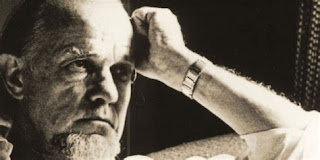
This weekend, Lord willing, I will join 134 others in Budapest for the Lausanne Europe Gathering. This is preparatory to the next large congress that is scheduled for next September in Seoul. There are four of us going from Great Britain, representing a spread of age, gender, ministry situation, and ethnicity.
Often when we consider the first Lausanne Congress in 1974, we think of the important contributions of John Stott, Samuel Escobar, Rene Padilla, and Ralph Winter.
But one of the less well-known contributors to that first congress was Francis Schaeffer. Francis and Edith Schaeffer were American missionaries who had developed a very significant ministry, inviting disillusioned young people to their home in Switzerland, and sharing the gospel with them.
I had come across Schaeffer as a teenager, and read everything I could that the Schaeffers had written.
Schaeffer’s talk at Lausanne was published as “Two Contents; Two Realities”.
As I reread that talk the other day, I was struck by two things:
1. How this message had been so influential on my ministry throughout my life; and
2. How relevant it is half a century later.
This is what he said:
There are four things which I think are absolutely necessary if we as Christians are going to meet the need of our age and the overwhelming pressure we are increasingly facing. They are two contents and two realities:
The First Content: Sound Doctrine
The Second Content: Honest Answers to Honest Questions
The First Reality: True Spirituality
The Second Reality: The Beauty of Human Relationship
I want to read to you one short quote from each point to give you a flavour of his presentation:
The First Content: Sound Doctrine
Schaeffer focusses firstly on the importance of believing and practicing truth:
…nowhere is practicing the truth more important than in the area of religious cooperation. If I say that Christianity is really eternal truth, and the liberal theologian is wrong—so wrong that he is teaching that which is contrary to the Word of God—and then on any basis (including for the sake of evangelism) I am willing publicly to act as though that man’s religious position is the same as my own, I have destroyed the practice of truth which my generation can expect from me and which it will demand of me if I am to have any credibility. (411)
The Second Content: Honest Answers to Honest Questions
His second point is on the importance of what we would now call cultural engagement:
Christianity demands that we have enough compassion to learn the questions of our generation. The trouble with too many of us is that we want to be able to answer these questions instantly, as though we could take a funnel, put in in one ear and pour in the facts, and then go out and regurgitate them and win all the discussions. It cannot be. (414)
The First Reality: True Spirituality
Here Schaeffer tells of a spiritual crisis he had gone through twenty years before, as he reflected on his life, and how he recognised that his spiritual life had not kept in line with his stated beliefs. He took time out to rethink his whole belief system, and then he says this:
I found something I had not been taught, a simple thing but profound. I discovered the meaning of the work of Christ, the meaning of the blood of Christ, moment by moment in our lives after we are Christians—the moment-by-moment work of the whole Trinity in our lives because as Christians we are indwelt by the Holy Spirit. That is true spirituality. (416-17)
True spirituality, he is arguing, is essential if we are to have any kind of lasting fruit in our lives. And that spirituality must be real, not fake.
The Second Reality: The Beauty of Human Relationships
Here he is talking about the importance of love in the community of God’s people:
Now if we are called upon to love our neighbour as ourselves when he is not a Christian, how much more…should there be beauty in the relationships between true Bible-believing Christians, something so beautiful that the world would be brought up short!...if we do not show beauty in the way we treat each other, then in the eyes of the world and in the eyes of our children, we are destroying the truth we proclaim. (419)
It is my conviction that these things are as true now as they were when Schaeffer first spoke them, and that is why they continue to have a profound influence on my life. My prayer is that these convictions would also shape the way we interact in Budapest.
(All refs are to the Complete Works of Francis Schaeffer, Vol. 3)
